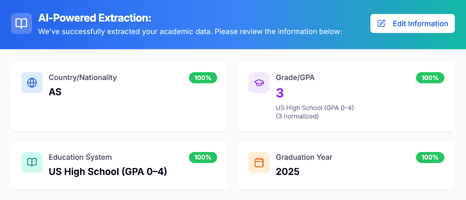Find your program
Working Up to 30 Hours A Week While Studying In Spain


So you want to get a job while studying abroad in Spain? If you are wondering if you’re allowed to work while living in Spain with a visa we are here to help. If you have a student visa, you are allowed to work up to 30 hours a week. The student visa authorizes you to work in Spain with 2 fundamental conditions.
- When attaining a visa, you are required to show that you are financially able to live in the country. The first condition states that whatever income you make from your job in Spain cannot count towards that amount. The student must continue to rely on their own economic means to support themselves in the country.
- The second condition states that you may work up to 30 hours per week, and that your work cannot interfere with your class time or studies. So the working contract must be a part-time job and can’t coincide or overlap with lectures.
Your employer is responsible for obtaining a work permit on your behalf. There are two ways in which an international student can work in Spain: either through a Student Visa or through an extracurricular or academic internship. In both cases, the job you acquire in Spain cannot become your main source of income- you cannot solely rely on your salary, as it is no longer a student, part-time job.
Recently, the Spanish Government has changed some of the restrictions on internships for international students- removing the location restrictions and allowing students to work for 30 instead of 20 hours a week, a new increase in time. Additionally, students are now allotted one year to find a new job following the end of your studies. Once you are finished with your studies, obtaining a work visa should be much easier.
Here are some things to consider when looking for an internship or job:
1. Have a Strong Resume

Make sure that you have a strong resume that properly highlights your skills and relevant experiences. While this may feel daunting, creating a strong resume is easier than it looks! Check out this Linkedin article on strengthening your resume. Also, don’t overlook platforms like Linkedin Resume Builder or MyPerfectResume that help you build and customize your resume with ease.
2. Write a Persuasive Cover Letter

Many people overlook the importance of a good cover letter. Instead of treating it like another obstacle in the job application process, consider it a way to expand on certain parts of your resume. Here’s an article from Harvard Business School that provides some advice on how to craft a persuasive and professional cover letter.
3. Strengthen Your Interview Skills

If you are someone who feels like you are a more persuasive candidate in person vs. on paper, then this is your time to shine! The interview is one of the most important parts of the process, as it highlights your personality. Here are some tips on how to ace your next interview.
In short, your resume makes sure you have the skills for the position. The cover letter allows you to provide some further insight and context to what is listed on your resume. The interview highlights the human aspect of you and is a great way to practice advocating for yourself.
Tools and Websites:
Platforms like the following are great for job hunting in Spain:
Be sure to check with your university as most have their job portal. Also, the StudiesIn Internship Portal connects you with internship opportunities tailored to your field of study. Make sure to craft and perfect your LinkedIn profile inorder to attract the Job of your dreams.
Types of Jobs:
Students often find roles in hospitality, retail, tutoring, and internships related to their study fields. These positions offer valuable experience and insights into the Spanish work culture.
Working in Spain provides a unique opportunity for you to grow professionally and personally. Additionally, working while studying abroad allows you to befriend your local coworkers and get a sense of the work culture in a different country. Make sure you consider this opportunity when applying for universities and programs- as many study programs provide opportunities for you to receive school credit for work abroad. Have any more questions? Check out the rest of our articles and FAQs.
.webp)

























.webp)





